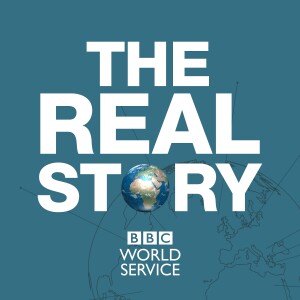
Bola Tinubu: Can Nigeria’s new president unite his country?
 2023-05-26
2023-05-26
Download
Right click and do "save link as"
The winner of Nigeria’s presidential election, Bola Tinubu is due to be inaugurated on 29 May but the opposition are challenging the results.
Only 27 percent of voters participated in the election, the lowest turnout in the country’s history. And a recent BBC investigation has found evidence suggesting some results from the February election may have been manipulated.
As well as the contested election results, the incoming president faces huge challenges governing Nigeria: the country is struggling with high inflation and an array of security threats – jihadist insurgencies in the north east, kidnapping and banditry especially in the north west, herder-farmer violence, and separatist violence in the south-west. It has huge oil wealth, but its oil industry has a documented history of corruption.
President-elect Tinubu says he'll hit the ground running by cracking down on those trying to split the country.
But can this veteran politician who proclaimed "it's my turn" unite it?
Shaun Ley in conversation with:
Nnamdi Obasi - senior Nigeria adviser with the International Crisis Group.
Fidelis Mbah - a freelance journalist based in Abuja
Idayat Hassan - director of the Center for Democracy and Development, a Nigerian think tank.
also featuring:
Katch Ononuju - special adviser to the Nigerian Labour party 's Peter Obi.
Rinsola Abiola - an activist in the ruling All Progressives Congress Party, APC, and a supporter of Mr Tinubu.
Produced by Alba Morgade and Ellen Otzen
(Photo: Nigeria's President-elect Bola Tinubu sits at the International Centre waiting to receive his certificate of return by the Independent National Electoral Commission (INEC) in Abuja on March 1, 2023. Credit: Olukayode Jaiyeola/NurPhoto via Getty Images)
view more
More Episodes
Is the future of journalism in crisis?
 2024-03-29
2024-03-29
 2024-03-29
2024-03-29
How can Boeing win back trust?
 2024-03-22
2024-03-22
 2024-03-22
2024-03-22
Should we be afraid of TikTok?
 2024-03-15
2024-03-15
 2024-03-15
2024-03-15
Can Haiti break free from its history?
 2024-03-08
2024-03-08
 2024-03-08
2024-03-08
What's fuelling the war in Sudan?
 2024-03-01
2024-03-01
 2024-03-01
2024-03-01
Getting ready for an older population
 2024-02-23
2024-02-23
 2024-02-23
2024-02-23
Is Senegal’s democracy under attack?
 2024-02-16
2024-02-16
 2024-02-16
2024-02-16
Do green policies and farmers have to clash?
 2024-02-09
2024-02-09
 2024-02-09
2024-02-09
China’s economy: How worried should we be?
 2024-02-02
2024-02-02
 2024-02-02
2024-02-02
The changing face of Taiwan
 2024-01-19
2024-01-19
 2024-01-19
2024-01-19
What will decide the 2024 US election?
 2024-01-12
2024-01-12
 2024-01-12
2024-01-12
Is the world losing faith in democracy?
 2024-01-05
2024-01-05
 2024-01-05
2024-01-05
Is time running out for Ukraine?
 2023-12-15
2023-12-15
 2023-12-15
2023-12-15
Is COP failing?
 2023-12-08
2023-12-08
 2023-12-08
2023-12-08
012345678910111213141516171819
Create your
podcast in
minutes
- Full-featured podcast site
- Unlimited storage and bandwidth
- Comprehensive podcast stats
- Distribute to Apple Podcasts, Spotify, and more
- Make money with your podcast
It is Free
- Privacy Policy
- Cookie Policy
- Terms of Use
- Consent Preferences
- Copyright © 2015-2024 Podbean.com


